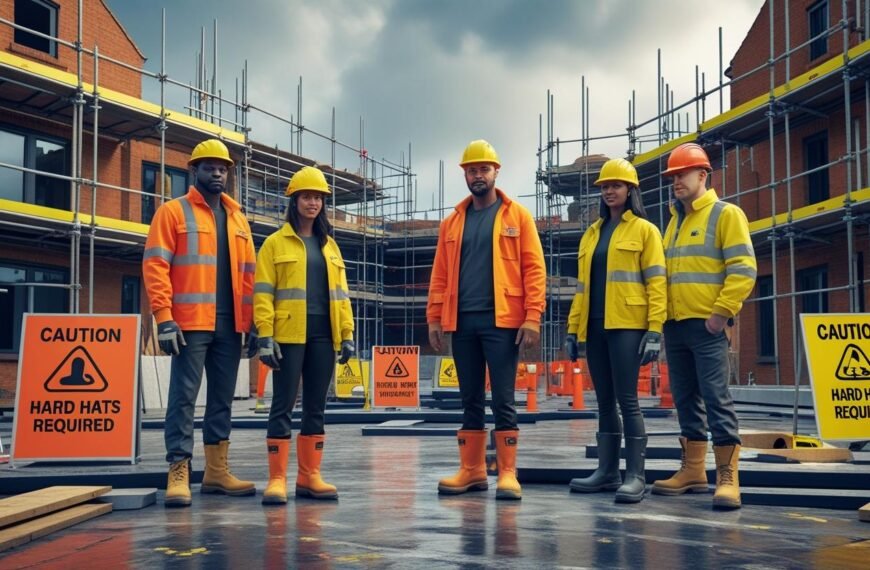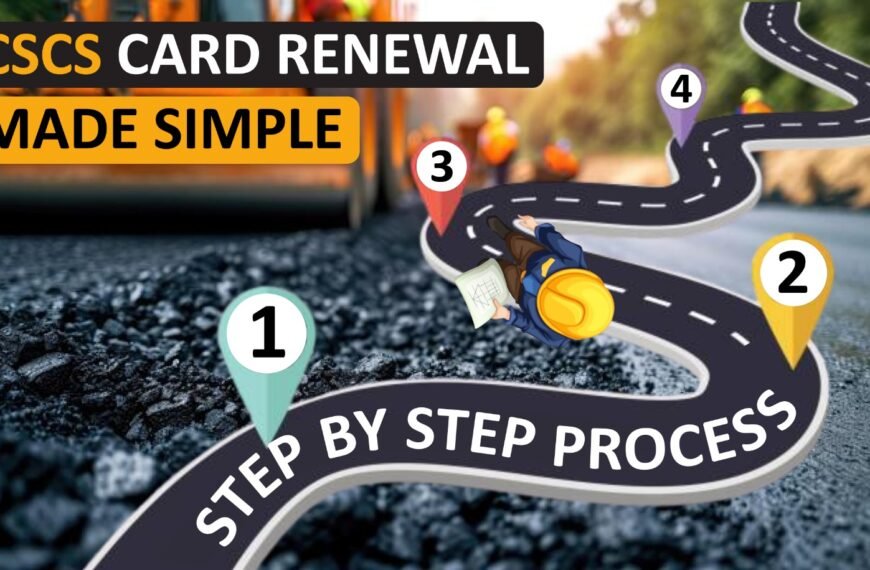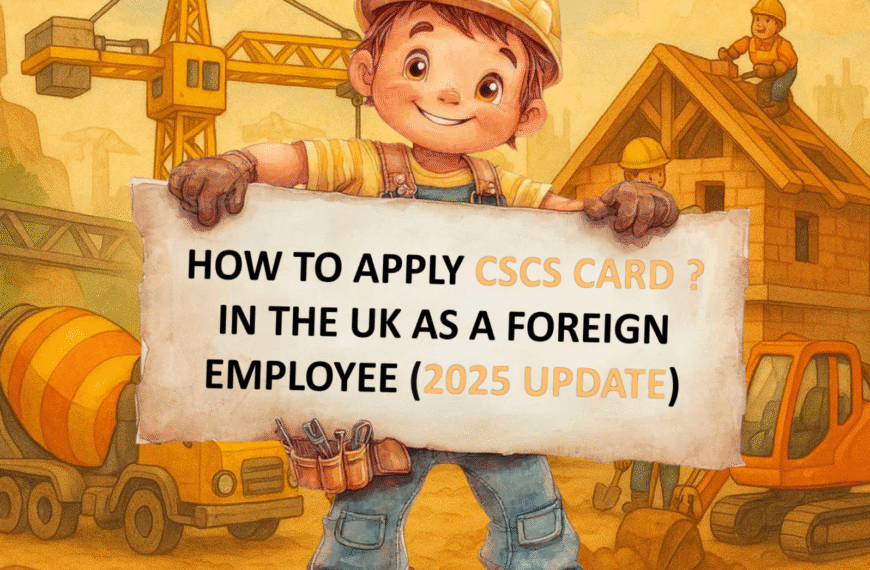If you’re looking to start or grow your career in the UK construction industry, one of the first things you’ll hear about is construction qualifications. These aren’t just fancy certificates — they’re your ticket to better job opportunities, higher pay, and safer work conditions. Whether you’re a beginner or already working on-site, knowing which qualifications matter the most can help you move forward faster and smarter.
In this guide, we’ll explain:
- Which qualifications are most in demand
- How to get them quickly
- What employers are really looking for
- Strategies for advancing in the UK construction sector
1. Why Do UK Construction Qualifications Matter So Much?
In the UK, the construction industry is tightly regulated to ensure safety, efficiency, and professionalism.
Employers want to make sure every worker knows how to do the job correctly and safely.
Having the appropriate building qualifications is therefore crucial and not a choice.
Key benefits of construction qualifications:
- Meet employer requirements
- Qualify for better-paying jobs
- Gain respect on-site
- Observe UK laws and safety and health regulations.
2. Top Construction Qualifications That Employers Respect
Let’s examine the credentials that are most in demand in the UK construction sector:
a. CSCS Card (Construction Skills Certification Scheme)
- Most recognised card in the industry
- Proves you’ve had basic health & safety training
- Comes in different types (Labourer, Skilled Worker, Supervisor, etc.)
- To obtain it, you must pass the CITB exam and possess the necessary credentials.
b. NVQ (National Vocational Qualification) in Construction
- Hands-on work-based qualification
- Proves your on-the-job skills
- Available in multiple levels (from Level 1 to 7)
- How to get it: Through approved training centres or workplace assessment
c. CPCS Card (Construction Plant Competence Scheme)
- For plant operators (dumper, crane, excavator)
- Shows you can operate heavy machinery safely
- How to get it: Pass theory + practical test
- For supervisors, the Site Supervisor Safety Training Scheme, or SSSTS
- SMSTS (Site Management Safety Training Scheme) is for managers.
- Run by CITB and highly respected
3. Fastest Ways to Get Qualified in the UK
Want to move quickly? Here’s how:
Pick the Right Skills for Your Role
Save time. If you are a worker, start with the Green CSCS Laborer Card.
Obtain the NVQ Level 2 + Blue Skilled Worker CSCS Card if you possess the necessary skills.
Book Training with Approved Centres
Make sure your course provider is accredited (like CITB, NOCN, etc.)
Take the Health & Safety Test
All applicants for CSCS cards must pass the CITB Health, Safety & Environment Test.
Apply Online
Most cards can now be applied for online in a few clicks.
4. How Construction Qualifications Improve Job Opportunities
Employers are more likely to hire and promote candidates who:
- Hold a valid CSCS or CPCS card
- Have completed an NVQ Level 2 or above
- Understand health & safety protocols
- Have role-specific training
With the right construction qualifications, you can:
- Get full-time, high-paying roles
- Be eligible for government/public sector projects
- Move up to supervisory or management positions
5. What UK Employers Really Look For
Requirement: Construction Qualifications
Why It Matters: Proof of training & competency
Requirement: Valid CSCS/CPCS Card
Why It Matters: Required to enter most UK construction sites
Requirement: Health & Safety Awareness
Why It Matters: Ensures site safety
Requirement: Experience with Tools/Machinery
Why It Matters: Speeds up project work
Requirement: Good Attitude & Work Ethic
Why It Matters: Reliable team player
Tip: Even if you’re a fresher, having the Green CSCS card shows you’re serious.
6. Cost & Time Involved in Getting Qualified
Qualification: CSCS Labourer Card
Time: 2–4 days
Cost: £40–£150
Qualification: NVQ Level 2
Time: 1–3 months
Cost: £700–£1,500
Qualification: CPCS Card
Time: 1 week – 1 month
Cost: £500–£2,000
Qualification: SSSTS/SMSTS
Time: 2–5 days
Cost: £250–£600
Note: Prices depend on training provider and location.
7. Where to Get Training in the UK?
Look for trusted and accredited training centres like:
- CACT Training
- CITB-Approved Centres
- NOCN Centres
- City & Guilds
Make sure they offer flexible batches and affordable plans.
8. How to Keep Your Qualifications Updated
Most cards and qualifications have expiry periods.
- CSCS card – usually valid for 5 years
- Health & Safety test – should be taken every 5 years
- SMSTS – needs a refresher every 5 years
Keep a note of expiry dates and renew on time.
9. Real Stories: Workers Who Boosted Their Careers
Ali from Birmingham:
Started as a general labourer with no card. My CSCS Green Card and NVQ Level 2 were acquired. Now I’m a site supervisor.
Sukhdeep from Leeds:
Passed my CPCS test for 360 excavator. Now earning £22/hour. It changed everything for me.
10. Final Tips to Get Ahead
- Don’t delay – the longer you wait, the more opportunities you miss
- Choose approved centres only
- Get help from training providers who also assist with job placement
- Keep moving up the ladder from employee to skilled to supervisor.
Conclusion
If you’re serious about a future in UK construction, qualifications are your foundation. From CSCS cards to NVQs and CPCS training, there’s a clear path to success — and you don’t need to wait years to get started. With the right training, right mindset, and right support, you can build a solid career in one of the UK’s biggest industries.








